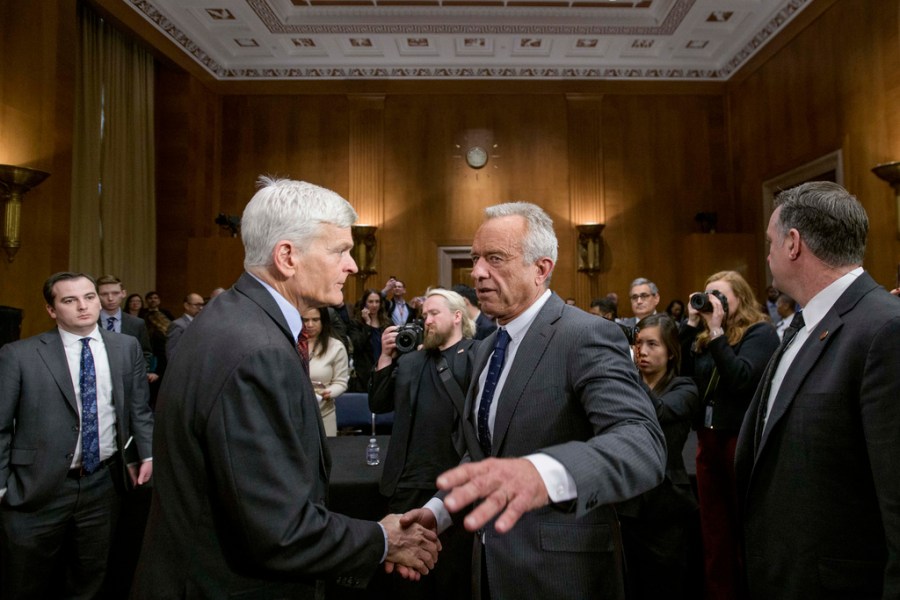
At a time when most members of Congress are either reflexively for or against President Trump’s agenda, it can be surprising to see a legislator wrestling with a vote.
That was the case last week when Sen. Bill Cassidy (R-La.) became the clear swing vote on the Senate Finance Committee as it decided whether to advance Robert F. Kennedy Jr.’s nomination for Health and Human Services secretary.
Cassidy ultimately voted to advance, clearing the way for RFK’s likely confirmation, but the real story is how masterfully the senator navigated his dilemma by negotiating for key concessions on vaccines and more. He set a powerful example for how other common sense members in both parties can wield influence in chaotic times.
It’s easy to see the pickle Cassidy faced. A Republican from ruby red Louisiana whose term is up in 2026, he faced potentially dire political consequences if he blocked Trump’s pick. Yet he is also a doctor and a longtime proponent of vaccination, which left him deeply troubled by many of Kennedy’s positions. At the same time, he expressed appreciation for Kennedy’s other stances, such as on food additives.
In a sign of how unaccustomed we are to seeing a member struggle with a vote, Cassidy became the subject of furious pressure campaigns from both sides. The flood of messages from supporters and opponents alike drowned his office phone lines and even reportedly caused his Senate website to crash.
What is a well-intentioned public servant to do in such a situation?
It seemed that Cassidy faced two options: rubber stamp the nomination or kill it. In fact, there was a third: Use his leverage to secure key concessions and shape the direction of Kennedy’s leadership. Cassidy took this third door, despite it being the more difficult and risky option, and it paid off in historic fashion. He secured multiple notable concessions that will pay dividends long after Kennedy is confirmed, if indeed he is.
For one, Kennedy agreed to maintain a close, ongoing relationship with Cassidy, meeting several times a month to ensure alignment. He also granted Cassidy unprecedented influence over hiring decisions within HHS, enabling him to ensure all sides are represented in vaccine and health care discussions.
Most importantly, Kennedy committed to upholding the current vaccine approval systems and safety monitoring mechanisms, and promised not to alter CDC immunization recommendations or remove statements from its website debunking the myth that vaccines cause autism.
These are extraordinary concessions that drive to the heart of many people’s concerns about Kennedy. Cassidy now has the potential to ensure HHS under Kennedy adheres to scientific standards without undermining legitimate innovations on food safety and other matters.
Cassidy turned what was a seemingly binary choice — vote yes or no — into a compromise that acknowledged the points on both sides.
In doing so, he displayed a profound understanding of practicality and realpolitik. The decision to engage with the Trump administration rather than alienate it now places him at the heart of future policy discussions, preserving his ability to influence outcomes. This role of mediator may prove indispensable if ideological clashes start to disrupt the functioning of HHS.
He also set an example for other legislators grappling with their role in the Trump era.
In this volatile political era, many members of Congress will find themselves privately struggling with how to vote on contentious issues. For those who want to be more than a mere rubber stamp or resistance fighter to Trump’s agenda, Cassidy proved that engaging with those we disagree with does not necessarily mean compromising on principles — it can instead be a strategic means to uphold them.
Nancy Jacobson is founder and CEO of No Labels.









